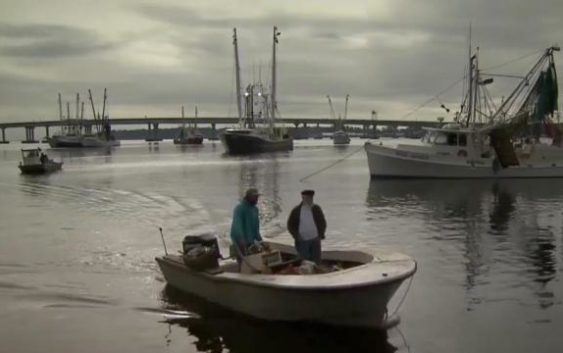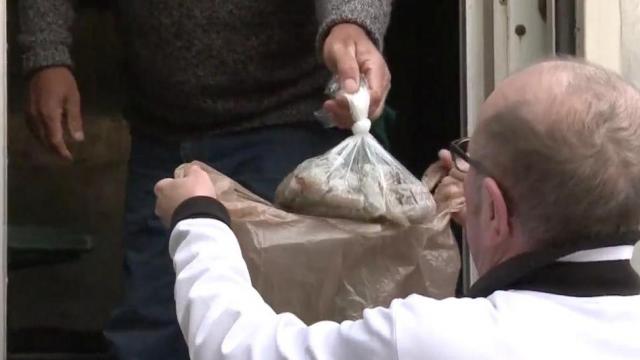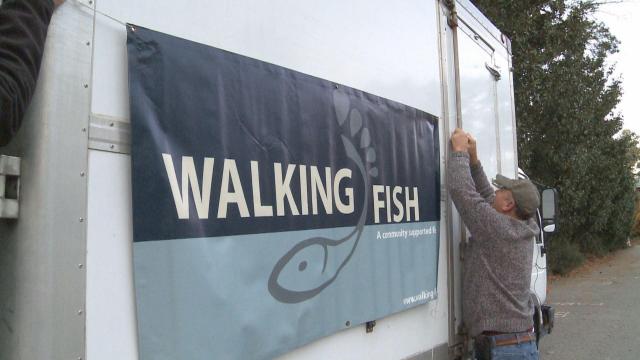- Seven months after Hurricane Helene, Chimney Rock rebuilds with resilience
- Wildfire in New Jersey Pine Barrens expected to grow before it’s contained, officials say
- Storm damage forces recovery efforts in Lancaster, Chester counties
- Evacuation orders lifted as fast-moving New Jersey wildfire burns
- Heartbreak for NC resident as wildfire reduces lifetime home to ashes
Community-supported program helps NC fishermen post-Florence

Durham, N.C. — The state’s seafood industry was among those hardest hit by Hurricane Florence last September. The “Walking Fish” cooperative program, an idea born at Duke University’s Nicholas School of the Environment almost 10 years ago, is one way fishermen like Paul Russell of Beaufort are recovering.
For 10 weeks in the spring and 12 weeks in the fall, Russell drives his refrigerated truck full of fresh seafood from his home in Beaufort to stops leading as far as Duke’s campus. This fall, sales season was cut by two weeks due to Florence.
Russell and his brother have been raising clams and oysters in the Newport River for the last 25 years. He also represents other coastal fisherman by bringing their catch to seafood dealers and restaurants as far as Raleigh and Durham.
The impact of Hurricane Florence limited the variety of seafood on this last trip of the fall season.
“It was catastrophic — pretty bad,” said Russell.
As a result, he could only offer customers two choices. “That’s your white shrimp,” he said as he lifted a two-pound bag of shrimp out of a cooler. He says the white shrimp is the last and best variety of the season before winter.
In a parking lot at Duke Gardens, Russell also had a fresh load of Sea Mullet filets. Mullet is more commonly known in restaurants as Whiting.
Russell says his cargo is 48 hours out of the water. “They catch it one day and then process them the next and we haul them the third day,” said Russell.
“That’s the freshest fish we know how to get,” said cooperative member Robert Wolpert.
Duke masters student David Dietz helps manage the community supported fishery program, keeping a record of the members who have previously bought “shares” and checking off their name from a list as they pick up their purchase.
“It connects local fishermen on the coast to local consumers here that want it,” said Dietz.
Bob Robertson, another longtime member, prefers buying straight from local fishermen. “At the store, you never know where it’s coming from,” he said.
Russell says survival in the seafood industry has become more challenging, even without major storms.
“I’ve seen the water quality go downhill,” he said, adding that it affects the health and survival of fish and shell fish.
Partially to blame, says Russell, is increasing development on the coastline.
“Plus, there’s more restrictions on fisheries — the amount of what you can catch and when you catch it,” he said.
Add Hurricane Florence to the equation and Dietz says it’s a wonder the cooperative’s fall delivery effort got off the ground. “It took a lot of work from our fishermen down there to get ready, back up and working again,” said Dietz.
The cooperative’s mission is to help the fishing industry remain profitable while at the same time promoting the long-term viability of the coastal resources.
Without the eager support of community members, Russell says, it might have been worse.
“You know, it probably helped the fishermen get back on their feet.”

